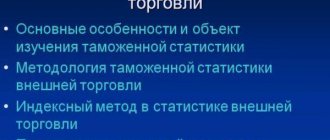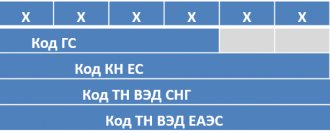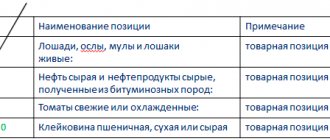- home
- Helpful information
- Foreign economic activity (FEA)
- Currency control for foreign trade
If, in the course of foreign economic activity, its participants carry out transactions with currency, they are subject to currency control measures by banking organizations. Such control is necessary to ensure compliance with the requirements of currency legislation. It applies if an organization receives funds from foreign counterparties or transfers funds to counterparties abroad. In Russia, its procedure is regulated by the Federal Law “On Currency Regulation and Currency Control”, as well as instructions, instructions of the Central Bank of the Russian Federation and a number of additional documents.
Currency control: legislation and basic terms
The main regulatory act that regulates currency transactions in the Russian Federation is Law No. 173-FZ dated December 10, 2003. On its basis, the Government of the Russian Federation and other government bodies adopt explanatory documents. One of the most important such regulations, which describes in detail the procedure for processing foreign exchange transactions, is the instruction of the Central Bank of the Russian Federation dated August 16, 2017 No. 181-I.
Let's look at the basic terms associated with currency control.
- Residents (legal entities) are organizations created in accordance with the legislation of the Russian Federation, as well as their branches, including those abroad. In addition, residents include the state itself, its diplomatic missions abroad, as well as federal subjects and municipalities.
- Residents (individuals) are citizens of the Russian Federation, as well as foreign citizens and stateless persons who permanently reside in the Russian Federation.
- Non-residents (legal entities) are organizations created in accordance with the legislation of other states, including their branches on the territory of the Russian Federation. Non-residents also include diplomatic missions of other countries in the Russian Federation and international organizations.
- Residents (individuals) – all foreign citizens and stateless persons, except those listed in clause 2.
- Authorized banks are Russian credit organizations that have the right to conduct foreign exchange transactions.
- Currency control authorities are structures that exercise general supervision of foreign exchange transactions and also issue regulations in this area. Today this is the Central Bank of the Russian Federation and the Government of the Russian Federation (represented by the tax and customs service).
- Currency control agents (CCA) are organizations that directly conduct currency transactions and verify their compliance with the law. In addition to authorized banks, AVK includes professional participants in the securities market and the state corporation VEB.RF.
Currency regulation of foreign economic activity in the Customs Union
Home — Articles
One of the main goals of Russia's economic policy is the creation of a competitive economy, which dictates the need to move from the investment to the innovation stage of development. In turn, the creation of a new competitive product involves the adoption of a set of measures regarding the liberalization of foreign economic activity, incl. in the field of currency regulation and currency control. Currency regulation is a complex of legislative, administrative, economic and organizational measures carried out by government bodies aimed at: - creating and ensuring the functioning of currency regulation and currency control bodies; — establishment and implementation of a certain procedure for conducting transactions with currency values on the domestic foreign exchange market; — establishing the procedure for moving currency values outside the state or into its territory from abroad and the regime for making foreign investments; — ensuring and protecting property rights to currency values; — regulation of international payments; — maintaining a stable exchange rate of the national currency and the national balance of payments; — ensuring the desired (integration or isolationist) mode of interaction of the country with the world foreign exchange market. Liberalization of foreign exchange regulation implies, first of all, a reduction or easing of foreign exchange restrictions in force in the state. In turn, the degree of rigidity and breadth of foreign exchange control on foreign exchange transactions depends on the presence and qualitative composition of these foreign exchange restrictions. Currency control can be considered not only as a mechanism for state control over compliance by residents and non-residents with acts of currency legislation of the Russian Federation and acts of currency regulatory authorities; not only as an administrative measure used by the state to protect financial independence, ensure the stability of the monetary system, strengthen the national currency and mobilize foreign exchange resources, but also as a form of non-tariff regulation of foreign trade, an analogue of which can be export quotas. In this latter capacity, currency control is an important stimulator or disincentive for foreign economic (including foreign trade) activities. The integration vector of Russian policy in the CIS and EurAsEC fully meets the strategic goal of modernizing and diversifying the domestic economy, transferring it to an innovative path of development. The benefits of integration will become increasingly noticeable as Russian industry undergoes structural restructuring and technical re-equipment, stimulating industrial cooperation and intra-industry trade. And modernization processes will receive an additional impetus thanks to the free movement of goods, services, capital and labor in the CIS and EurAsEC regions. Attempts to form a single economic space, a single payment system and a customs union across the CIS in the 90s of the last century were immature and hasty. The process of real formation of a common capital market in the post-Soviet space can be counted from the Treaty on the Customs Union and Common Economic Space (1999). In development of this Treaty, by decision of the Interstate Council of the EurAsEC dated June 22, 2005 N 220, the Concept of cooperation of the member states of the Eurasian Economic Community in the monetary sphere was adopted, declaring the goals of the agreed monetary policy: - achieving full convertibility of national currencies for current and capital transactions of the balance of payments; — coordination of mechanisms for the formation of mutual rates of national currencies; — creation of an integrated currency market of the EurAsEC; — formation of a payment and settlement system using national currencies; — transition to international financial reporting standards; — providing legal entities that are residents of the parties with national regimes in the financial services markets of the parties. Almost immediately, on January 25, 2006, the member states of the EurAsEC concluded an Agreement on cooperation in the field of organizing an integrated foreign exchange market of the member states of the Eurasian Economic Community, which are guaranteed the provision of national treatment to resident banks of the parties to the Agreement. At the 19th meeting of the Council of Heads of Central (National) Banks of the EurAsEC member states in November 2008, the National Bank of the Republic of Kazakhstan presented the results of an analysis of the harmonization of principles and mechanisms for the conduct of monetary and exchange rate policies by the EurAsEC member states. At the meeting, it was noted that the main content of the methods and approaches to the implementation of monetary and exchange rate policies by the central (national) banks of the Community countries is largely identical. However, the greatest degree of harmonization is observed in the methods and approaches to the implementation of monetary policy and currency regulation in the Republic of Belarus, the Republic of Kazakhstan and the Russian Federation. It was recommended to continue work on further harmonization of the principles and mechanisms of policy implementation by the EurAsEC member states in these areas. The EurAsEC states reached a new level of currency integration by concluding on December 11, 2009 in St. Petersburg the Agreement on the fundamental principles of the monetary policy of the member states of the Eurasian Economic Community on the regulation and control of transactions related to the movement of capital. The agreement defines the fundamental principles of foreign exchange policy pursued by the parties to regulate and control transactions related to the movement of capital, aimed at the gradual abolition of restrictions on foreign exchange transactions, as well as a list of foreign exchange transactions between residents of the EurAsEC member states in respect of which foreign exchange restrictions do not apply. On December 9, 2010, the member states of the EurAsEC concluded an Agreement on agreed principles of monetary policy in the member states of the Common Economic Space. It determines the principles of the monetary policy pursued by the parties and is aimed at developing cooperation in the monetary and financial sphere. The document provides for the implementation of monetary policy by the parties, incl. based on the gradual harmonization and convergence of approaches to the formation and implementation of foreign exchange policy, the creation of the necessary organizational and legal conditions at the national and interstate levels for the development of integration processes in this area, increasing confidence in the national currencies of the parties, both in the domestic foreign exchange market of each participating state, and in international currency markets. The agreement also stipulates that, in order to implement an agreed monetary policy, the parties take measures to coordinate the exchange rate policy of national currencies, ensure the convertibility of national currencies for current and capital items of the balance of payments without restrictions, create conditions and ensure direct mutual quotations of the national currencies of the parties, ensure the conduct of mutual settlements between participants in foreign economic activity of the states party to the Agreement in their national currencies, the formation by three countries of a common integrated foreign exchange market (on May 16, 2011, the Government of the Russian Federation submitted this Agreement to the President of the Russian Federation for submission to the State Duma of the Russian Federation for ratification ).
In furtherance of these Agreements, Resolution No. 11-17 of the EurAsEC IPA dated 06.04.2010 approved Recommendations for harmonizing the legislation of the EurAsEC member states in the field of currency regulation and control. Emphasizing the continuity in previously adopted legal acts of the EurAsEC in the field of foreign exchange policy and foreign exchange regulation and intending to maintain consistency in achieving the goal of unifying foreign exchange policy and harmonizing the foreign exchange legislation of the EurAsEC members, the drafters of the Recommendations propose to be guided by the following areas of harmonization (unification) and improvement of the legislation of the EurAsEC member states in in the field of currency regulation and currency control: 1. Clearer differentiation of objects of legal regulation in national laws on currency regulation and control. 2. Continuation of work on liberalization and harmonization (convergence) of national legislation on issues of currency regulation and exchange control, as well as on the implementation of the principles and norms of generally recognized international legal acts, taking into account the provisions of the Concept of cooperation of member states of the Eurasian Economic Community in the currency field. 3. Acceleration of domestic procedures for ratification of the Agreement on the fundamental principles of the monetary policy of the member states of the Eurasian Economic Community for the regulation and control of transactions related to the movement of capital, adopted on December 11, 2009 in St. Petersburg. When implementing measures to harmonize (unify) national legislative acts on issues of currency regulation and currency control, the EurAsEC member states are recommended to be guided by the following approaches: - providing all entities with equal conditions and rights to conduct currency transactions permitted by domestic legislation; — reduction of norms requiring the adoption of by-laws in the field of currency regulation and control, in particular those relating to the repatriation of foreign and national currency, the import/export of cash currency; — gradual abandonment of the permitting system for conducting foreign exchange transactions; — development of unified reporting forms for currency transactions, as well as, based on the experience of the Republic of Belarus, consideration of the possibility of replacing the procedure for issuing a transaction passport with the procedure for registering a transaction with a bank on the application principle. Currently, the EurAsEC IPA Standing Commission on Customs Regulation and Border Policy is preparing a new edition of a standard draft legislative act on currency regulation and currency control. It also seems relevant and expedient for the Commission to develop a scientifically based strategy for the development of the EurAsEC monetary policy in the context of the introduction of a regional currency. The core of integration processes within the EurAsEC in the financial and customs spheres is the Customs Union of Russia, Belarus and Kazakhstan. The creation of the Customs Union creates the need for harmonization by the member countries of the union of all foreign economic matters, including. currency legislation, as well as in synchronizing the pace of liberalization of monetary policy. The issues that require prompt approval and legal registration include the following: 1. Liberalization of foreign exchange regulation of foreign trade activities in the direction of reducing the number and unifying the regimes of remaining foreign exchange restrictions, including: a) in terms of determining the procedure for the movement of cash currency and valuables by individuals papers across the customs border of the Customs Union; b) regarding the repatriation of foreign currency earnings within the Customs Union and in trade transactions of residents of countries participating in the Customs Union with third countries. 2. Unification of procedures for customs and banking currency control and standardization of the documentary basis of currency control. 3. Creation of a system of information interaction between the customs authorities of the participating countries among themselves, with national and authorized banks of the countries, with other government bodies of the member states of the Customs Union. In tripartite consultations, it is necessary to resolve many issues related to the conflict of legal acts adopted within the Customs Union with domestic legal acts. Let us consider sequentially the above-mentioned areas of harmonization of currency legislation. Determination of the procedure for moving cash currency and securities across the customs border of the Customs Union . By Decision No. 51 of the Interstate Council of the EurAsEC dated July 5, 2010, the Agreement on the procedure for the movement of cash and (or) monetary instruments by individuals across the customs border of the Customs Union was approved. Certain provisions of this Agreement contradict Art. 15 of the Federal Law of December 10, 2003 N 173-FZ “On Currency Regulation and Currency Control”. The agreement does not contain quantitative restrictions on the export of cash currency by individuals, whereas in para. 4 p. 3 art. 15 of the Federal Law prohibits the export by individuals of cash foreign currency and (or) currency of the Russian Federation in an amount exceeding the equivalent of 10,000 US dollars. In addition, the Agreement uses concepts unknown to Russian currency legislation - “monetary instruments”. In its decision, the Interstate Council of the EurAsEC obliged the parties to bring their domestic legislation into compliance with the Treaty. According to Part 1 of Art. 15.25 of the Code of Administrative Offenses of the Russian Federation, including: individuals who exported funds from the Russian Federation in the equivalent of over 10 thousand US dollars without confirmation that they had previously been imported or transferred to Russia. This position is confirmed by judicial practice, in particular by the Resolution of the Supreme Court of the Russian Federation dated June 11, 2010 N 71-AD10-4. However, with the entry into force of the Treaty, a legal conflict arises, since an international act allows the import and export of currency without restrictions. The only prerequisite is a written declaration of the amount over 10 thousand US dollars. Based on the above and taking into account the letter of the Federal Customs Service of Russia dated November 23, 2010 N 01-11/56802, part 1 of Art. 15.25 of the Code of Administrative Offenses of the Russian Federation is currently not applied in the part that provides for liability for the export by an individual from the territory of the Russian Federation of currency worth more than 10 thousand US dollars. After ratification of the Treaty, it will be necessary to make appropriate changes to the country’s domestic currency legislation.
Repatriation of foreign exchange earnings within the Customs Union and in trade transactions of residents of countries participating in the Customs Union with third countries . The issue of repatriation of foreign currency earnings within the Customs Union remains to be resolved. The controversial nature of this currency restriction is manifested not only in the fact that it is usually applied in conjunction with another currency restriction—the mandatory sale of a portion of foreign currency earnings, which has already been abolished since January 1, 2007. It is also necessary to note the internal technical and legal difficulties that manifest themselves in the qualification of this offense and bringing to administrative liability under Parts 4 and 5 of Art. 15.25 of the Code of Administrative Offenses of the Russian Federation or criminal liability under Art. 193 of the Criminal Code of the Russian Federation. Thus, among the problems of applying the rules on liability for violating the requirement to repatriate foreign currency earnings, the main problem noted is the problem of determining the guilt of a person when brought to administrative responsibility. In accordance with Art. 1.5 of the Code of Administrative Offenses of the Russian Federation, a person is subject to administrative liability only for those administrative offenses for which his guilt has been proven. According to Part 2 of Art. 2.1 of the Code of Administrative Offenses of the Russian Federation, a legal entity is found guilty of committing an administrative offense if it is established that it had the opportunity to comply with the rules and regulations for the violation of which the Code of Administrative Offenses of the Russian Federation provides for liability, but this person did not take all measures depending on it to comply with them. Thus, the official considering the case must evaluate the measures taken by the person to credit the proceeds from the export of goods, works, services, results of intellectual activity or the return of funds transferred to non-residents for goods not imported into the customs territory of the Russian Federation, uncompleted work , unprovided services, untransmitted information and results of intellectual activity. When subsequently appealing decisions to impose administrative liability, ambiguous judicial practice develops regarding the assessment of the sufficiency of such measures. In some cases, the courts believe that sufficient measures are simply sending a formal request to the counterparty for payment or return of the advance payment (Resolution of the Federal Antimonopoly Service of the North-Western District dated 06/09/2009 in case No. A05-13952/2008), in other cases even seeking legal assistance from for the purpose of debt collection in the country where the counterparty is located is not a sufficient measure (Resolution of the Federal Antimonopoly Service of the Far Eastern District dated June 24, 2009 N F03-2683/2009 in case N A04-271/2009). Either a participant in foreign trade activities is charged with the obligation to provide in a foreign trade contract conditions that eliminate the risk of non-residents not fulfilling their obligations or that provide for mechanisms for collecting payment amounts in court (Resolution of the Federal Antimonopoly Service of the North Caucasus District dated March 17, 2008 N F08-933/08-351A on case No. A32-23273/2007-63/618-111AZh).
The legal position of the Presidium of the Supreme Arbitration Court of the Russian Federation does not add clarity, according to which the receipt by a resident of foreign currency earnings in excess of the period stipulated by the contract due to late payment by a non-resident in the absence of facts of illegal behavior of the resident that prevents the receipt of foreign currency earnings to their bank accounts in authorized banks, and also if the resident takes measures depending on him to receive this proceeds, it does not constitute an offense established by Part 4 of Art. 15.25 of the Code of Administrative Offenses of the Russian Federation (Resolution of the Presidium of the Supreme Arbitration Court of the Russian Federation dated April 28, 2009 N 15714/08). The question remains open about cases when foreign exchange earnings were not received.
We should agree with the authors who propose abandoning the requirement for the repatriation of foreign currency earnings while maintaining the possibility of introducing it as an emergency measure.
Unification of procedures for customs and banking currency control and standardization of the documentary basis of currency control . Article 183 of the Customs Code of the Customs Union establishes that when declaring customs, it is necessary to present a document confirming compliance with the requirements in the field of currency control - a transaction passport. This should happen in accordance with the currency legislation of the member states of the Customs Union. On the territory of the Russian Federation, participants in foreign trade activities, when required by customs authorities to provide a transaction passport, must be guided by the Federal Law of December 10, 2003 N 173-FZ “On Currency Regulation and Currency Control”. The Recommendations for the harmonization of the legislation of the EurAsEC member states in the field of currency regulation and control state that an analysis of the development of currency regulation and currency control in the Community countries indicates a shift in their vector towards the liberalization of currency legislation. At the same time, in some countries liberalization is taking place across a wide range of foreign exchange transactions, while in others, some restrictions are maintained. Thus, the requirement for the mandatory sale of foreign currency earnings remains in the Republic of Belarus and has been abolished in other countries of the Community. At the same time, in the Republic of Belarus, unlike other countries of the Customs Union, Decree No. 104 of February 19, 2009 simplified the procedure for conducting and controlling foreign trade operations. The existing fairly formalized mechanism for issuing a transaction passport has been replaced by a procedure for registering a transaction with a bank based on the application principle. Registration is carried out on the day of submission of the document through which the foreign trade agreement is drawn up. Residents carrying out foreign trade transactions are given the right not to register transactions in the event of advance payment in full (for export) or preliminary receipt of goods in full (for import); and also, with the permission of the National Bank, carry out settlements under foreign trade agreements that provide for the import of goods without their entry into the customs territory of the Republic.
The rather complex, cumbersome system of documentary support for foreign trade transactions that exists in Russia, which has a permitting nature, is a serious bureaucratic barrier to the intensification of foreign trade activity. About 80% of violations of currency legislation under five sections of Art. 15.25 of the Code of Administrative Offenses falls precisely on clause 6 of this article, which provides for liability for failure to comply with the established procedure or deadlines for submitting accounting and reporting forms for currency transactions, violation of the established uniform rules for issuing transaction passports, or violation of the established storage periods for accounting and reporting documents or transaction passports. According to Bank of Russia Instruction No. 117-I and Bank of Russia Regulation No. 258-P, Russian participants in foreign trade activities must submit documents to the Bank of the transaction passport such as: - transaction passport; — certificate of currency transactions (or payment document); — certificate of receipt of Russian currency; — supporting documents (i.e. specified in paragraph 4 of Article 23 of the Federal Law on Currency Regulation and Currency Control); — a certificate of payments through accounts abroad; — certificate of supporting documents; - supporting documents. Taking into account the fact that all documents require different deadlines for their submission, as well as taking into account the low explanatory potential and level of legal technology of the above-mentioned regulations of the Bank of Russia, we can conclude that the documentary base of customs and banking currency control in its current form does not contribute to stimulating foreign trade activities residents with the outside world, incl. within the framework of the Customs Union. Therefore, the measures taken by the Central Bank to simplify the procedure for registering a foreign trade transaction are especially valuable. According to the instruction of the Central Bank of Russia dated December 29, 2010 N 2557-U “On introducing amendments to the Bank of Russia Instruction dated June 15, 2004 N 117-I”, from February 26, 2011, in particular, it is not required to draw up a PS for a foreign trade transaction between a non-resident and a resident if the total amount of the contract does not exceed the equivalent of 50 thousand dollars (prior to the entry into force of the instruction for any type of contract between a non-resident and a resident it was not necessary to draw up a PS if the amount of the contract on the date of its conclusion did not exceed 5 thousand dollars) . In addition, from the date of entry into force of Directive N 2557-U, a resident has the right to close a PS previously executed under a foreign trade agreement (contract), the total amount of which as of the date of entry into force of the Directive does not exceed the equivalent of 50 thousand dollars or in the event of a change in the amount of the contract on the date of conclusion of the latest amendments (additions) to it providing for such changes. Customs exchange control, unlike bank exchange control, is not as documented. It is regulated by the Instruction on the actions of customs officials who, for the purposes of currency control, verify documents submitted for customs clearance of goods and information declared in the customs declaration (approved by Order of the Federal Customs Service of Russia dated November 17, 2009 N 2075). Documents and information used by customs authorities for the purposes of currency control are the basis for distinguishing three relatively independent procedures within the framework of currency control: 1. An official checks the compliance of the information stated in the customs declaration with the information contained in the documents submitted for customs clearance of goods . 2. Carrying out by an official a check of compliance with the rules for stating in the customs declaration the information necessary for the purposes of currency control. 3. Conducting an official check of compliance with the rules for issuing a transaction passport. In essence, we are talking about the fact that within the framework of customs currency control, a customs official analyzes three documents for correct execution and correlation with each other: the transaction passport, the customs declaration and the foreign trade contract. At the same time, the Federal Law “On Customs Regulation in the Russian Federation” gave the Federal Customs Service of Russia the right to issue regulatory legal acts in the field of customs affairs, reducing the list of documents and information presented when declaring goods. The service has already prepared a draft regulatory act, according to which it is not required to present a transaction passport when submitting a declaration for goods to which export customs duties are not applied, when they are placed under customs procedures for export and temporary export. At the same time, the requirement to indicate the PS number in the declaration of goods in the prescribed manner is retained, subject to the availability of an electronic copy of the PS in the regional currency control database.
Thus, within the framework of the Customs Union, both the unification and simplification of customs and banking exchange control procedures seem urgent, which will certainly have a positive impact on the development of foreign trade relations within the Union. Creation of a system of information interaction between the customs authorities of the participating countries of the Customs Union among themselves, with national and authorized banks of the countries, and other government bodies . One of the key prerequisites for creating an effective system of customs currency control is to ensure information interaction between customs authorities among themselves, with other subjects of currency control of the three countries and supranational authorities in this area. Legal support for information interaction in the field of currency control is the most important component of currency control, because along with other factors allows you to increase its efficiency, incl. due to: 1) eliminating duplication of functions of bodies and currency control agents; 2) increasing the level of efficiency of decision-making; 3) ensuring greater effectiveness of currency control measures. Of great importance for the organization of internal and external currency control in the Customs Union will be, firstly, the creation of an institutional framework for currency control in the form of coordinating supranational bodies of currency regulation and currency control and, secondly, the organization of interaction between national and supranational bodies in this area . Issues of interaction between currency control subjects must be considered in the context of more general issues of organizing a unified information and legal base of the countries participating in the Customs Union, as well as the creation of common mechanisms for interaction between the customs authorities of these countries. On November 27, 2009, by decision of the Interstate Council of the EurAsEC, the draft Concept for the creation of an Integrated Information System for Foreign and Mutual Trade of the Customs Union was approved. The goal of creating the system is to ensure effective regulation of foreign and mutual trade in the customs territory of the Customs Union, the implementation of customs, tax, transport and other types of government control using information telecommunication technologies when moving goods and vehicles across the customs border. This goal is expected to be achieved, among others, by solving the following tasks: - creating and maintaining a unified system of regulatory and reference information for foreign and mutual trade of the Customs Union; — formation of an integrated information structure for interstate exchange of data and electronic documents in the customs territory of the Customs Union; — creation of common integrating elements and replenished centralized information resources for the Member States; — organizing information interaction between the authorities of the participating states to ensure the complete collection of customs payments, taxes and fees; — organizing information interaction between bodies exercising state control (phytosanitary, veterinary, sanitary-quarantine, transport, export and others) in the customs territory of the Customs Union; — ensuring information interaction on the basis of interstate and interdepartmental agreements; — ensuring access to regulatory legal acts of the member states of the Customs Union in the field of foreign and mutual trade. As already noted, the organization of information interaction between member countries of the Customs Union in the field of currency control is based on the creation of a system and technology for interaction between the customs authorities of the three countries. On May 21, 2010, by decision of the Interstate Council of the EurAsEC No. 41, an Agreement was adopted on the requirements for the exchange of information between customs authorities and other government bodies of the member states of the Customs Union, and on September 21, 2010, an Agreement on the use of information technologies in the exchange of electronic documents in foreign and foreign countries was signed. mutual trade in the single customs territory of the Customs Union. The first document aims to create a regulatory legal framework for organizing the exchange of information between the customs authorities of the member states of the Customs Union, as well as between the customs authorities of one member state of the Customs Union and other government bodies of another member state of the Customs Union. The second regulates the relations arising in the process of drawing up, sending, transferring, receiving, storing and using electronic documents by government bodies of the states of the parties, individuals or legal entities when using information technologies for the exchange of electronic documents in foreign and mutual trade in the single customs territory of the Customs Union. Considering that the architecture of information interaction between customs authorities and other entities, even within the domestic currency control system, has only recently begun to acquire visible features, one can assume what difficulties such close, but still so different legal and information systems of the three states will face. Today in Russia, in the field of currency control, information interaction is normatively regulated: - between currency control authorities (On information interaction between the Central Bank of the Russian Federation and the Federal Service for Financial and Budgetary Supervision on currency control issues: Agreement dated August 15, 2007); - currency control agents with the Central Bank of the Russian Federation as a currency control body (Rules for ensuring interaction between professional participants in the securities market, customs and tax authorities as currency control agents with the Central Bank of the Russian Federation: approved by Decree of the Government of the Russian Federation dated September 11, 2006 N 560); — other subjects of currency control with Rosfinnadzor as a currency control body (Rules for the submission by bodies and agents of currency control to the currency control body authorized by the Government of the Russian Federation (Federal Service for Financial and Budgetary Supervision) of documents and information necessary for the implementation of its functions: approved by Decree of the Government of the Russian Federation dated 02/24/2009 N 166); — currency control agents with residents (non-residents) carrying out currency transactions (Rules for the submission by residents and non-residents of supporting documents and information when carrying out currency transactions to currency control agents, with the exception of authorized banks: approved by Decree of the Government of the Russian Federation dated February 17, 2007 N 98) .
Since February 16, 2011, the Federal Law of November 15, 2010 N 294-FZ “On amendments to certain legislative acts of the Russian Federation regarding the regulation of the exchange of documents and information between currency control authorities and currency control agents” has been in force. Now the main issues of information interaction between the subjects of currency control are not only more clearly regulated, but also “raised” from the subordinate level to the level of the Basic Law regulating currency relations. Information exchange under the new rules is carried out electronically. With the entry into force of changes to Law N 173-FZ, Russian participants in foreign trade activities are becoming more clear about how currency control authorities and agents mutually inform each other, as well as in what cases and what information can be considered a commercial, banking, tax or official secret. In December 2009, at an informal summit in Almaty, the Presidents of the Republic of Belarus, the Republic of Kazakhstan and the Russian Federation approved the Action Plan for 2010 - 2011 for the formation of the Common Economic Space (SES) of the three countries, which assumes the next round of integration of the three countries after the creation of the Customs Union . The plan provides for the development and signing by January 1, 2012 of twenty international treaties ensuring the creation of the SES. In order to timely implement this Plan, the Calendar Plan for the formation of the legal framework of the SES for 2010 - 2011 was approved, providing for the development, adoption and entry into force of the first package of 14 agreements by July 1, 2011 and the second package of 6 documents on the SES - up to 1 January 2012 Packages are divided into areas: 1. Economic policy. 2. Freedom of capital movement, monetary policy. 3. Energy, transport, communications. 4. Freedom of movement of labor. 5. Technical regulation. As part of the second direction, in the first package, before January 1, 2011, the Agreement on the Fundamentals of Investment Activities and the Agreement on Creating Conditions in Financial Markets to Ensure the Free Movement of Capital were to be signed and put into effect by July 1, 2011. In the second package, by July 1, 2011, the Agreement on Agreed Principles of Monetary Policy must be signed and put into effect by January 1, 2012. Thus, by detailing the legal, institutional and information and technical aspects of interaction between the member states of the Customs Union, the prerequisites are created for creating an effective system of customs currency control in the Customs Union.
March 2012
Customs Union, Foreign economic activity
Commentary on the Treaty on the Eurasian Economic Union
Treaty on the EAEU: a document regulating foreign economic activity
Treaty on the Eurasian Economic Union
Movement of currency and currency values in the EurAsEC Customs Union
Customs declaration of goods in the Customs Union
Why is currency control needed and what transactions does it apply to?
The state organizes foreign exchange controls to limit capital outflow and support the national currency. This procedure also makes it possible to identify various illegal tax “schemes” with the participation of foreign counterparties.
The following categories of transactions are subject to mandatory currency control:
- Between residents and non-residents. It is important to understand here that even if a Russian company pays a foreign partner in rubles, it is still a currency transaction subject to control.
- Foreign exchange transactions between residents.
- Ruble transactions between non-residents.
- Any movement of funds or securities across the state border.
Since we are talking about export-import operations from the point of view of a Russian company, we will further consider transactions related to paragraphs 1 and 4.
How banks carry out currency control
To carry out settlements with foreign partners, a Russian company must open an account in one of the authorized banks and sign a contract.
The contract, depending on its category, must indicate the exact terms of payment, delivery of goods (provision of services), return of the advance or repayment of the loan.
The procedure for a bank to carry out currency control primarily depends on the amount of the transaction. It must be converted into rubles at the exchange rate of the Central Bank of the Russian Federation on the date of signing the contract. Further, the procedure will depend on the scale of the transaction in ruble equivalent.
If the contract is small - for an amount less than 200 thousand rubles, then no documents need to be submitted to the bank. The businessman only needs to inform the credit institution of the currency transaction code (Appendix 1 to instruction No. 181-I).
For larger transactions, the order depends on the category of the transaction: export, import or loan settlements.
| Transaction amount, rub. | Export | Import/credit |
| from 200 thousand to 3 million | submit a contract to the bank | |
| from 3 million to 6 million | submit a contract to the bank | register a contract with a bank |
| over 6 million | register a contract with a bank | |
For medium-sized transactions, the businessman must provide a contract to the bank. The credit institution will determine the transaction code based on this document.
If the transaction is large (over 6 million rubles for export or over 3 million rubles for import and credit), then the bank not only takes the contract from the businessman, but also registers it, assigning a unique number.
This procedure replaced the issuance of transaction passports, which were in effect until March 2021. Exporters can register not only a finished contract, but also its draft. In this case, the document must be signed by the foreign buyer and submitted to the bank within 15 days after registration.
For all large contracts that the bank registers, the businessman must draw up a special form provided for in Appendix 6 to Instruction No. 181-I - a certificate of supporting documents (SPD).
The SPD contains a list of documents related to the execution of the contract. It indicates the amounts and timing of receipt of funds to an account in a Russian bank.
The SPD must be submitted to the bank within 15 days after the end of the month in which the transaction was executed. Depending on the category of the contract, this may be:
- For export shipments or import purchases, the month in which the declaration was issued.
- When providing services - the month in which the acceptance certificate was signed.
- When repaying a loan or advance by a foreign counterparty, the month in which the money was credited to the Russian company’s account.
How can I find out about the progress of the audit?
All information will be reflected in the “Personal Account of the Foreign Economic Activity Participant”. Here you can learn about checks of the data specified in the declarations, which are received from customs to authorized banks.
In the “Currency Control” tab of the “Services” section there is information about violations and risks of violations during currency control. There you can also see whether an administrative case has been initiated against the company.
If you know about the threat of violations in advance, you can quickly react and, for example, provide missing documents.
This is what the section in the personal “Personal Account of a foreign trade participant” looks like, which contains violations and risks of violations during currency control.
Sanctions for violations of currency laws
Violations in the field of currency control are divided into two main categories: incorrect execution (failure to submit) of the necessary documents and non-receipt of foreign currency earnings.
Sanctions for errors in document preparation for the first violation amount to up to 5 thousand rubles. for officials and up to 50 thousand rubles. – for organizations. If the mistake is made again, the fine will increase significantly. The guilty person will have to pay up to 15 thousand rubles, and the organization – up to 150 thousand rubles. (Clause 6 and 6.4 of Article 15.25 of the Administrative Code).
The penalty for late submission of documents to the bank depends on the period of delay. Maximum fines are provided for violation of the deadline for more than 30 days: up to 5 thousand rubles. for an official and up to 50 thousand rubles. – for an organization (clause 6.3 of article 15.25 of the Administrative Code).
For violation of the deadlines for the return of foreign currency funds, the fine on the organization will be 1/150 of the key rate of the Central Bank of the Russian Federation of the amount of delay for each day. At the same time, a fixed fine in the amount of 0.75 to the full amount of non-refund may be applied. In any case, the guilty official will be fined from 20 to 30 thousand rubles. (Clause 4 and 5 of Article 15.25 of the Administrative Code).
Administrative punishment is applied for relatively “small” scale violations, amounting to up to 9 million rubles at the current exchange rate. If larger amounts are stuck abroad, then Art. 193 of the Criminal Code of the Russian Federation. The maximum sanctions under it (in aggravating circumstances) can reach a fine of 1 million rubles. and imprisonment for up to 5 years.
Documentation submission deadline
If a write-off is carried out, this occurs simultaneously with the provision of a write-off order. Enrollment documents must be provided within 15 working days. The regulated period for transfer to another banking organization or assignment of rights under a transaction is 30 days (excluding weekends).
Supporting documentation is sent within 15 days of the following circumstances:
- months of registration of the declaration for the export and import of goods, execution of documents confirming the fulfillment of obligations under the contract;
- dates of registration of adjustment documents.
How to avoid punishment for violating the rules of working with currency
Violations of the procedure for settlements with foreign partners will lead the company to serious losses. And in some cases, the perpetrators may even lose their freedom. Is it possible to avoid such an outcome? The simplest answer: if you do not break the law, there will be no punishment.
But not everything in such a situation depends on the goodwill of the Russian businessman. For example, a foreign partner did not pay for the goods within the period specified in the contract. But in the general case, the Russian company will still be guilty. This is the position of not only the regulatory authorities, but also the Constitutional Court (decision dated May 19, 2009 No. 572-О-О).
Punishment will not be applied only if the reason for non-fulfillment of the contract was force majeure circumstances: natural disaster, military action, etc. And the Russian side of the transaction will be responsible for the “ordinary” dishonesty of a foreign partner.
To avoid such unpleasant situations, you can use the following protection options:
- Insure the risks of non-receipt of revenue or non-receipt of imported goods for which an advance payment has been made.
- Use a bank guarantee. This service is in many ways similar to insurance, but is provided by credit institutions.
- Make payments using a letter of credit. In this case, the buyer immediately reserves funds in a special account. Therefore, the supplier can be sure that after shipment of the goods the bank will transfer him the due amount.
You can also postpone the payment deadline. But you need to sign an additional agreement to the contract and submit it to the bank before the end of the initial period.
Does the bank have the right to refuse registration?
The currency agent has every right to refuse to accept the agreement for servicing. Most often, this is due to an insufficiently serious attitude towards the quality of the documents drawn up on the part of entrepreneurs. For example, this happens if the documents:
- were not provided;
- partially transmitted (some of them are missing);
- contain false information;
- do not meet the stated criteria.
If the documentation provided is insufficient and the decision to refuse was made for this reason, professionals must indicate exactly what information was not provided.








